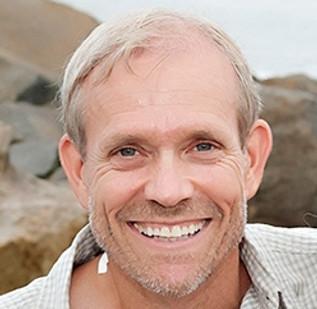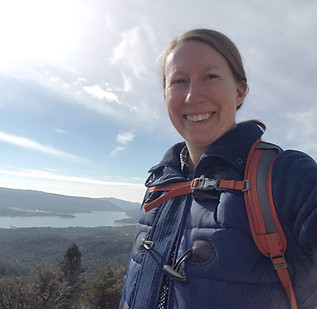
Research and Management Team

Engagement Strategy Team
Learn about the other members of the Climate Science Alliance team who are supporting this project here.

Bios

Hugh D. Safford, Ph.D.
UC Davis
Dr. Hugh Safford retired as the Regional Ecologist for the USDA-Forest Service’s Pacific Southwest Region (California, Hawaii, Pacific territories) and remains a member of the research faculty in the Department of Environmental Science and Policy at the University of California-Davis. Safford manages a boundary-spanning unit of Forest Service ecologists that provides expertise in vegetation, fire, and restoration ecology, climate change, inventory, and monitoring to the 18 National Forests in the Pacific Southwest Region. The Safford Lab at UC-Davis is focused on applied ecological support to resource and fire management in California, neighboring states, and other Mediterranean climate regions. Safford is director of the Sierra Nevada section of the California Fire Science Consortium, co-chairman of the California Research Natural Areas committee, and he serves on science advisory boards for a number of national environmental collaboratives and NGOs. Safford provides international technical assistance on fire, forest management, and climate change issues in partnership with the US-Agency for International Development (USAID) and the International Program of the Forest Service; recent projects include fire management planning in northern Mexico, climate change adaptation in southeast Brazil, and forest restoration in North Africa and the Levant. Safford was a fellow with the Fulbright Global Scholars Program between 2017 and 2019, where he studied post-fire ecosystem restoration practices in the Mediterranean Basin. Safford co-edited a recent book entitled Valuing Chaparral: Ecological, Socioeconomic, and Management Perspectives, published by Springer in 2018, which deals with the complicated issues surrounding management and sustainability of chaparral ecosystems in California. Safford grew up in southwestern Montana, he has lived in California since 1986 and splits his time between Davis and the Lake Tahoe Basin.

Nicole Molinari, Ph.D.
Los Padres National Forest
Nicole Molinari is a community ecologist with a broad interest in the consequences of human induced global change, including the effects of wildfire, biological invasion, climate change, and altered disturbance regimes on vegetation patterns. Dr. Molinari currently serves as the USDA-Forest Service Province Ecologist for the four southern California forests (Angeles, Cleveland, Los Padres and San Bernardino) where she applies scientific and ecological principles to pressing management issues. Her focus with the US Forest Service centers on fire ecology, ecological restoration, and the response of vegetation to a changing environment. To advance our understanding of these topics, Nicole mentors graduate students and has partnered with UC Santa Barbara to establish a long-term ecological monitoring program across federally managed lands in southern California. To raise awareness and foster appreciation for chaparral shrublands, Nicole convenes scientists and land managers for a bi-yearly Chaparral Symposium and is a co-editor of Valuing Chaparral: Ecological, Socio-economic, and Management Perspectives. Nicole received her MS in Biology from Cal Poly-San Luis Obispo, and her PhD in Ecology and Evolution from UC Santa Barbara. Nicole is stationed at the Los Padres National Forest Headquarters, and lives in Goleta with her husband and two little boys.

Jeff Heys
US Forest Service, Southern California Zone
Jeff Heys is the Wildfire Crisis Strategy Landscape Manager for Southern California for the US Forest Service, since its establishment in January 2023. Previously, he was the Forest Resource Officer on the Cleveland National Forest, where he worked since 2012. There, he managed a team of resource specialists with the goal of conserving and restoring its natural and cultural resources, and he served on the Forest Leadership Team. Jeff started his career on the Tongass National Forest, followed by a decade working as a biologist for the National Park Service and US Fish and Wildlife Service in Alaska. He holds a B.S. in Earth Systems from Stanford University and a M.S. in Environmental Science from Alaska Pacific University. Jeff’s favorite of many outdoor pursuits is mountaineering, and he enjoys sharing his love of the outdoors with his two teenage sons.

Sarah Hennessy, Ph.D.
US Forest Service, Pacific Southwest Region
Sarah Hennessy is an Associate Ecologist for the US Forest Service in Southern California. At the San Diego Zoo Institute for Conservation Research, Dr. Hennessy led the development of a collaborative conservation and management plan for the Burrowing Owl. She received her Ph.D. in Ecology with the same focus from UC Davis and SDSU, her M.S. in Horticulture and Agronomy from UC Davis with a thesis focused on conifer encroachment into aspen stands in Lassen Volcanic National Park, and a B.A. from Yale in Biology. Dr. Hennessy’s favorite activity in the Cleveland National Forest is to search for Lawrence’s Goldfinches.

Carolyn Enquist, Ph.D.
Southwest Climate Adaptation Science Center
For over two decades, Carolyn has worked at the nexus of science and practice with positions at the National Wildlife Federation, the National Park Service, the Forest Service, The Nature Conservancy, The Wildlife Society, the USA National Phenology Network, and the USGS-led Climate Adaptation Science Center Network. She has largely focused on the natural resource management implications of climate change for biodiversity conservation, with an added focus on the development and translation of science that is supports effective decision-making. She has led and contributed to numerous peer-reviewed articles and national reports focused on the biodiversity impacts of climate change, practical guidance for conducting vulnerability assessments, and the practice of climate adaptation planning and implementation. She currently serves as a Lead Author on the IPCC Working Group 2 AR6 report. As part of this work, she maintains a keen interest in understanding and supporting the human dimensions of climate adaptation. She received M.S. and Ph.D. degrees in biology from the University of New Mexico in Albuquerque.
_edited_edited.jpg)
Megan Jennings, Ph.D.
San Diego State University
Megan Jennings is a Conservation Ecologist and Co-Director of San Diego State University's Institute for Ecological Monitoring and Management. The research she works on is primarily focused on informing conservation and management planning in terrestrial systems with particular interest in incorporating landscape dynamics into connectivity planning. Dr. Jennings earned a Ph.D. in Ecology from San Diego State University and the University of California, Davis. She worked for over a decade as a wildlife biologist for the US Forest Service in San Diego where her years of experience in land management for a federal agency informed her perspective as a researcher. Dr. Jennings strives to work at the interface of science and management - developing applied research to address management and conservation issues and communicating results and real-world recommendations to decision-makers and managers. Dr. Jennings is an Adjunct Assistant Professor at San Diego State University, an affiliated researcher with the Scripps Center for Climate Change Impacts and Adaptation, and serves as an advisor to the Climate Science Alliance.

Amber Pairis, Ph.D.
Climate Science Alliance
Dr. Amber Pairis is the Executive Director and Founder of the Climate Science Alliance with affiliations with the Southwest Climate Adaptation Science Center, Western Regional Climate Center at Desert Research Institute University of Nevada, Reno, and Scripps Institution of Oceanography at UC San Diego. Pairis is an experienced Science Director with a demonstrated history of working with partners to elevate and support community led and implemented projects. Her current work focuses on building a science focused network of leaders, scientists, and managers focused on sharing ecosystem-based resiliency approaches to safeguard our communities and natural resources from climate change. In 2019 Pairis was recognized as San Diego’s Community Hero for Climate Change by KPBS and the National Conflict Resolution Center. In 2017 Pairis was honored with the National Climate Adaptation Leadership Award for Natural Resources for her outstanding work in raising awareness and helping the nation’s natural resources become more resilient to the impacts of a rapidly changing world. In 2013 Pairis was appointed by Governor Brown as the Assistant Secretary for Climate Change-California Natural Resources Agency and worked collaboratively to coordinate the State's activities related to climate change adaptation. Preceding the appointment, Pairis served as the Climate Change Advisor for the California Department of Fish and Wildlife (CDFW) and created the Department's Climate Science Program and CDFW Climate College. In 2006 Pairis worked for the Association of Fish and Wildlife Agencies in Washington D.C. where she served as the Science Liaison coordinating between state and federal natural resource agencies on energy and climate change research. Pairis completed her Ph.D. in Environmental Studies at Antioch University New England with an emphasis in Conservation Biology. She is a fellow of the Robert and Patricia Switzer Foundation.








_edited_edited.jpg)
